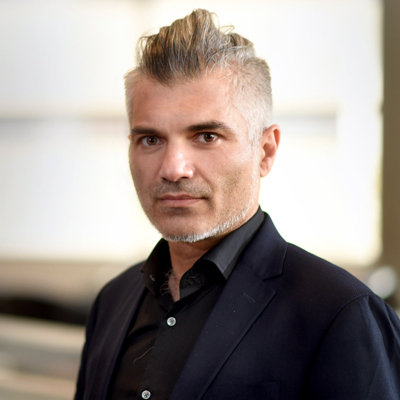Presenter

Andreas Tolias
Dr. Andreas Tolias is a co-founding director of the Enigma Project and Professor of Ophthalmology at Stanford University, with a courtesy appointment in Electrical Engineering and affiliations with Bio X, the Wu Tsai Neurosciences Institute, and Stanford's Institute for Human Centered Artificial Intelligence. His work combines large scale neural recordings with machine learning to decode the brain’s algorithms for perception and cognition and to design neuro informed artificial intelligence that is smarter, more efficient, and inherently interpretable. Before joining Stanford, Dr. Tolias founded and directed the Center for Neuroscience and Artificial Intelligence at Baylor College of Medicine (Houston, TX) where he held the Brown Endowed Chair. He received a B.A. and M.A. in Natural Sciences from the University of Cambridge (UK), a Ph.D. in Systems \& Computational Neuroscience from MIT, and completed post doctoral training in neuroscience and machine learning at the Max Planck Institute for Biological Cybernetics (Tübingen, Germany). He has led DARPA and IARPA funded consortia that produced the largest paired functional connectomics dataset and has been a pioneer of brain digital twin models—all in service of decoding the brain’s computational blueprint for intelligence. His honors include the NIH Director’s Pioneer Award, Beckman Young Investigator Award, McKnight Scholar Award, McKnight Memory & Cognitive Disorders Award, and the Michael E. DeBakey Excellence in Research Award. Dr. Tolias’s goal is to push the frontier of NeuroAI, driving advances in next generation computing and AI driven precision therapies for brain disorders.
Abstract:
You … your memories and ambitions, your sense of personal identity and free will, are in fact no more than the behavior of a vast assembly of nerve cells …’ Crick’s words capture the profound challenge of decrypting the neural code. This challenge has long been hindered by our limited ability to record activity from large neuronal populations under the complex, variable conditions in which brains evolve, and our capacity to model the intricate relationships between stimuli, behaviors, and neural activity. Recent breakthroughs are starting to overcome these barriers. Cutting-edge technologies now enable large-scale recordings, while AI can construct predictive brain models that link stimuli, neural activity, and behavior. These digital twins open the door to limitless in silico experiments, testing theories that are otherwise impossible at scale in living brains. I will discuss our work in creating these digital twins and uncovering neural representation mechanisms, which we validate with closed-loop experiments.